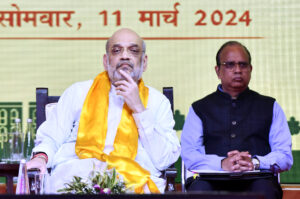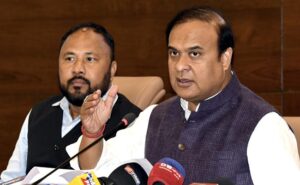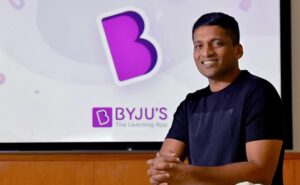Venezuela’s illegal detentions are ramping up, rights group says

[ad_1]
When his sister, Sugled Gasparini, waved him goodbye, she didn’t know it was the beginning of a nightmare that has yet to reach its conclusion.
Instead of returning home to El Hatillo, a leafy neighborhood to the southeast the capital Caracas, Jairo a mechanic in the town, was detained, according to his sister, by the Venezuela Directorate for Military Counter-Intelligence (DGCIM in the Spanish acronym), one of the most feared forces in the security apparatus of embattled President Nicolas Maduro.
The government, via Attorney General Tarek William Saab, dismissed the report, telling CNN the organization had no competence to judge the situation in Venezuela.
Although DGCIM is only meant to operate within the armed forces as a policing force, it is known to have detained civilians, a sign of increasing forceful repression by the Maduro government. It’s not clear how much the AG Office knows about their activities or raids.
But Sugled didn’t know this: for the first 10 days after Jairo’s detention, she only knew her brother was missing.
In an interview with CNN, Sugled spoke of the anguish of not knowing what happened. She and her mother looked for Jairo in hospitals and morgues, and even among the large Venezuelan diaspora abroad. Sugled sent a picture of her brother through WhatsApp chats of migrants as far as Ecuador but heard nothing.
Three days after his disappearance, Jairo’s girlfriend officially filed a missing person report to the Venezuelan police, but the police took five days to respond. They told her boyfriend might have been detained. Jairo’s girlfriend declined to speak to CNN due to her fear of security surveillance in Venezuela.
It was only on March 28 that Sugled heard Jairo’s voice again — in a telephone call from Boleita, DGCIM’s infamous detention center in Caracas. He told his sister that he was OK and they’ve had a few short phone conversations since, she told CNN.
“It was exactly 10 days,” she said. “Ten days without knowing about him. Ten days of looking for him in hospitals, in morgues, 10 days where a mother was anxious to see her son. It’s not fair.”
‘Enforced disappearances’
Sugled’s story is far from unique in Venezuela. According to the RFK report, “enforced disappearances” have become a pattern under Maduro.
There were 524 such disappearances in 2019, up from 200 the previous year, according to Foro Penal, a Venezuelan human rights NGO, which gathered the data used in the RFK report. And there have been 235 in 2020, the RFK report said, and “14 of these people remain disappeared as of May 31, 2020, the date of this report’s finalization.”
The rationale behind the disappearances varies: According to the report, Maduro’s security forces use them to silence prominent political opponents, to set an example for the wider population, to instill fear in political opponents, or to extract valuable information.
Angelita Baeyens, one of the authors of the RFK report, cited one specific case as typical: Ariana Granadillo disappeared twice in 2018 because, according to herself and her lawyer, she was living in the house of a distant relative, a National Guard colonel who deserted and took arms against Maduro.
In an interview with CNN, Granadillo said she had never taken part in political activities before her detention. She said that one of her captors, also from DGCIM, told her she was being detained as a way of getting to her relative, Oswaldo García Palomo, who lived in Canada in 2018 but returned to Venezuela in 2019 and was subsequently detained by the military.
Attorney General Saab dismissed the RFK findings when contacted by CNN last week. “I hope they also have a report ready evidencing that the US Police is the most criminal on the planet,” Saab said in reference to the turmoil in the US sparked by outrage over the killing of George Floyd in Minneapolis.
John Jairo’s detention seems similar, as his sister claims he was detained because he was chatting with a person wanted by the government.
But the real reason remains unknown. The DGCIM has not presented a warrant to justify Jairo’s arrest, and his lawyers have not been able to speak with him.
Under the cover of Covid-19
That dismantling has not happened and the coronavirus pandemic is only making the situation worse, according to the authors of the report. While in 2019 the average length of disappearance was only a handful of days, detentions are lasting longer because courts are closed, movement is restricted and most of Venezuela’s bureaucracy is under lockdown.
A spokesperson from Voluntad Popular, a political organization opposing Maduro, said cases like that of Jairo’s are happening on an almost weekly basis.
Alfredo Romero, the president of a lawyers’ association that works on this type of case in Venezuela, says that the lockdown has triggered huge violations of the right to a defense.
Lawyers can no longer visit detainees, or ask tribunals to access court documents. In some cases, detainees have been transferred from one prison to another without their legal team ever knowing, on the grounds of health reasons, according to Romero.
Meantime, John Jairo remains in detention, more than three months after he disappeared. His sister is holding out hope she will see him soon. “I just want to see him free.”
This story has been updated to correct the spelling of Sugled Gasparini’s first name.
Audrey Ash reported from Atlanta, Stefano Pozzebon from Bogota, and Jorge Luis Perez Valery from Caracas.
[ad_2]
Source link









